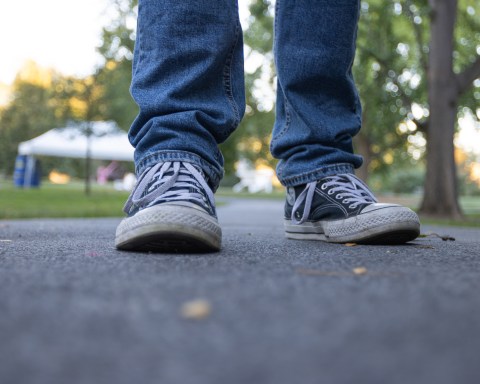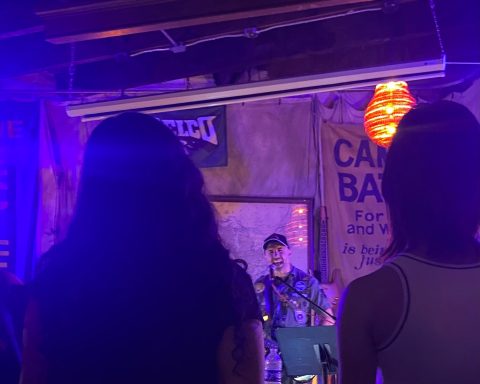Editor’s note: This article was initially published in The Daily Gazette, Swarthmore’s online, daily newspaper founded in Fall 1996. As of Fall 2018, the DG has merged with The Phoenix. See the about page to read more about the DG.
Abigail Henderson ’14 is taking a leave of absence this semester do what she calls “A Semester of Service” in Philadelphia. She is keeping a blog as she goes and will share selected posts with The Daily Gazette on a weekly basis. You are invited to find out more and read the full blog at semesterofservice.wordpress.com, and you can email Abigail at ahender1@swarthmore.edu.
I’ve been thinking a lot about the word “courage” recently, as it relates to my life and the lives of others. My favorite blog (indeed the only blog I have ever read/followed) is a blog called “Fuzzy English” in which the author blogs about important life things while connecting concepts back to words and their etymologies (meaning how words evolved over time, and what the different parts that make them up mean). That blog has inspired me in many different ways over the years (you should read it — it might inspire you too!), and today it has inspired me to write about courage.
My friend and mentor O feels there is a distinction between bravery and courage. Bravery, she says, is an overcoming of fear by brute force, while courage is putting your whole heart into something. Bravery is what helps you cross a narrow rickety bridge 50 feet above the ground. Courage is what it takes to tell someone you love them. Having bravery can make you cool (or stupid, depending). Having courage can make you beautiful.
It turns out that the etymologies agree with her. “Courage” comes from the Latin cor, meaning “heart.” It came up through the romance languages and has been in the English lexicon since around 1300. “Bravery,” not quite as old but just as romantic, came to us through the Spanish and Italian words bravo, which historically meant “bold” but also “wild, savage, untamed.” (There is some debate regarding whether it is derived from the Latin bravus “cutthroat, villain” or the Latin barbarus“barbarous,” but that doesn’t really matter for my purposes).
The people I find myself admiring most are those with courage. People who admit that they are clinically depressed and need help. People who work to make their campus safe for survivors of sexual assault even when doing so triggers them on a daily basis. People who refuse to quit dreaming just because their dreams have been shattered in the past. People who refuse to quit loving just because their hearts have been broken. People who give up everything so their children can have better lives. People who come to school every day to teach a class of 35 first-graders without giving up hope, even when they know that half of their students are living in poverty and many of them will go to prison before they graduate. People who write poems about their most intimate secrets or their worst fears and then stand up and read them in front of a room full of people. People who sit in that room, let themselves cry without wiping the tears away from embarrassment, and approach the poet afterwards to let them know how much it meant to them. These are the people who inspire me.
It is not easy to show courage. It requires equal parts vulnerability and strength. But when those two ingredients are perfectly mixed, the result is something so beautiful and loving and powerful that it changes lives. Courage helps us heal. It helps us transform things like fear, anger, and violence into things like trust, love, and tranquility. And I believe that everyone is capable of showing it. It doesn’t matter how big or small the act feels, because (as O constantly needs to remind me) we should not rank emotion. Every one of us has done something courageous and every one of us knows someone who has.
Who is someone that you admire for showing courage? I challenge you to write them a letter, or even send them a quick text, just to let them know. Because in doing so, you are showing a type of courage too, and you are letting them know that they are loved and supported. That’s important. Courage can be draining, and we need all the help we can get if we are going to change this world with our hearts.
courage (n.)
c.1300, from Old French corage (12c., Modern French courage) “heart, innermost feelings; temper,” from Vulgar Latin *coraticum (source of Italian coraggio, Spanish coraje), from Latin cor “heart”
– The Online Etymology Dictionary (my favorite!)
– – – – – – — – – – – – — – – – – – – – – – – – – – – – – – – – – – – – – – – – – – – – – – – – – – – – – – – – – – – – – – – – – – – – – – – – – – – – – – – – – – – – – –














I really loved this… thanks for writing it.